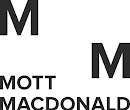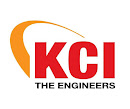Centre for Doctoral Training (CDT)
Renewable Energy Marine Structures (REMS) is an EPSRC-funded Centre for Doctoral Training (CDT), which has registered almost fifty Engineering Doctorate (EngD) and PhD students. This is a collaboration between Cranfield, Oxford and Strathclyde Universities. The REMS Programme began in October 2014 and completed its 5th and final round of recruitment in October 2018. A new CDT, Wind and Marine Energy Systems and Structures composed of Strathclyde, Oxford and Edinburgh Universities will succeed REMS taking in its first cohort in September 2019.
A student registering for an EngD spends four years attending a structured programme of taught modules and will complete a PhD-level thesis or portfolio of work. The industry-based students could be existing staff or the EngD could form part of a graduate training programme for new recruits with a view to them becoming leading specialists in the area of Renewable Energy Marine Structures by the time they graduate. Industry-based students will spend 75% of their time working in their companies but will attend intensive training periods at the universities for taught modules, group project working and other activities. The PhD students will pursue research primarily in a university but with a strong industrial focus. Research Projects will usually be supervised by at least one academic based at one of the two universities and an industry mentor/supervisor.
The REMS Centre will have significant and long lasting impact in four core areas (Society, Economy, Knowledge and People) through various innovative and novel activities, maximising the benefit offered from the research, training and outreach activities. The REMS Centre will build on existing best practice and impact activities undertaken at the partner institutes.
Quick Links:
Research Areas
Apply Now
Our Supporting Partners















Benefits for Sponsors
Technical
- Research focused on key technical issues for real projects
- Academic guidance from world class universities
- Driven delivery in a controlled budget
- Personal development of the sponsored student
- Internal staff development through wider knowledge sharing
- Technical innovation to enable enhanced margin
- Strengthened academic links with benefits via consultancy activities
Market Visibility
- Opportunity to be known as an industry partner in the CDT
- Network opportunity at annual REMS Conference
- Sponsored research may lead to new contracts and work
- Increase in publication profile, with possible impact on IP commercialisation
- Network opportunities for the candidate in the CDT, at the Universities and at conferences
Staff Recruitment & Retention
- Could assist in attracting the high caliber graduates to the company
- Aids staff retention
- Training modules available to other staff at cost
Benefits for Students
- Academic guidance from world class universities
- Membership of a cohort of high-caliber engineers trained to EngD and PhD level
- Networking opportunity with industry at annual REMS Conference and within the CDT
- Industrially relevant research topics in Structural Integrity, Geotechnics and Manufacturing
- Access to world-leading industrial scale research facilities
- Integrating PhD Research with advanced skills training programme
- Intensive induction term with core modules
- Specialist technical modules and transferable skills and engineering leadership courses

